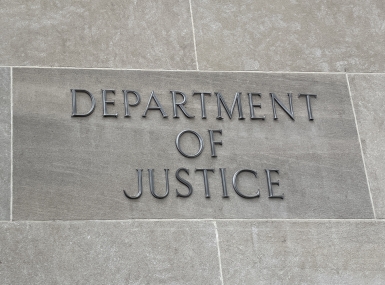Repeat immigration bills in committee
The House Judiciary Committee will begin marking up four immigration bills this month. Each bill deals with enforcement of immigration laws, and they were introduced in similar form in the 113th Congress. NACo opposed two of the bills because they imposed unfunded mandates on local governments, as explained below. Here's a quick look at the measures.
The Legal Workforce Act (H.R. 1147): This bill would mandate employers to verify the immigration status of new hires through E-Verify an electronic system that confirms the work authorization of immigrants. State and local governments, however, would have the additional mandate of verifying the employment authorization of existing hires of verifying the immigration status of current employees on state and local governments.
The Michael Davis, Jr. in Honor of State and Local Law Enforcement Act (H.R. 1148): This bill would grant state and local governments the authority to enforce immigration laws, heretofore a federal responsibility. It is substantially similar to the SAFE Act (H.R. 2278), introduced in the 113th Congress and opposed by NACo, the National League of Cities, the National Conference of State Legislatures and the U.S. Conference of Mayors because of concerns with the shifting of federal immigration enforcement responsibility to state and local governments and resulting costs to those governments.
The bill also calls for increased sharing of information related to undocumented immigrants between state's local governments.
The Protection of Children Act (H.R. 1149): Under current law, undocumented children from countries that share a border with the U.S. (e.g.,Mexico) can be immediately returned to their home country after being apprehended if they are not victims of trafficking or persecution, while children f rom other countries go through formal removal proceedings.
This bill would remove that distinction and enable authorities to immediately return children to their home countries regardless of the geographical proximity of the country to the U.S. It would also require the U.S. Department of Health and Human Services (HHS) to provide the U.S. Department of Homeland Security (DHS) with biological information regarding the sponsors or families to whom unaccompanied minors allowed to remain in the U.S. are released.
The Asylum Reform and Border Protection Act (H.R. 1153): Under current law, undocumented immigrants apprehended at U.S. borders who show a "credible fear of persecution" are allowed to stay in the country while courts adjudicate their claim for asylum. This bill would address the concern that such individuals are allowed into the country and subsequently granted asylum without sufficient caution on the part of the federal government. It tightens the standards related to admitting individuals who assert a fear of persecution into the country and thereafter adjudicating their claims for asylum.
The bill would also require HHS to provide DHS with information regarding the location of undocumented minors in HHS custody.
Attachments
Related News

House draft bill text proposes FEMA reform package with major wins for counties
This week, the U.S. House Transportation and Infrastructure Committee’s Economic Development, Public Buildings and Emergency Management Subcommittee released draft bill text for a sweeping Federal Emergency Management Agency (FEMA) reform package aimed at improving disaster response, streamlining aid and increasing local flexibility—reflecting many long-standing county priorities.

DOJ terminates justice and public safety-focused grants
On April 22, the U.S. Department of Justice’s largest grant-making arm—the Office of Justice Programs—abruptly cancelled hundreds of grants awarded to county governments and other local jurisdictions and organizations. Approximately 365 grants have been identified for termination, which were estimated to be valued at $811 million at the time of awarding; it is unclear how much funding remained at the time of termination.

County Countdown – April 21, 2025
Every other week, NACo's County Countdown reviews top federal policy advocacy items with an eye towards counties and the intergovernmental partnership. This week features the ARPA reporting deadline, a budget reconciliation update and more
